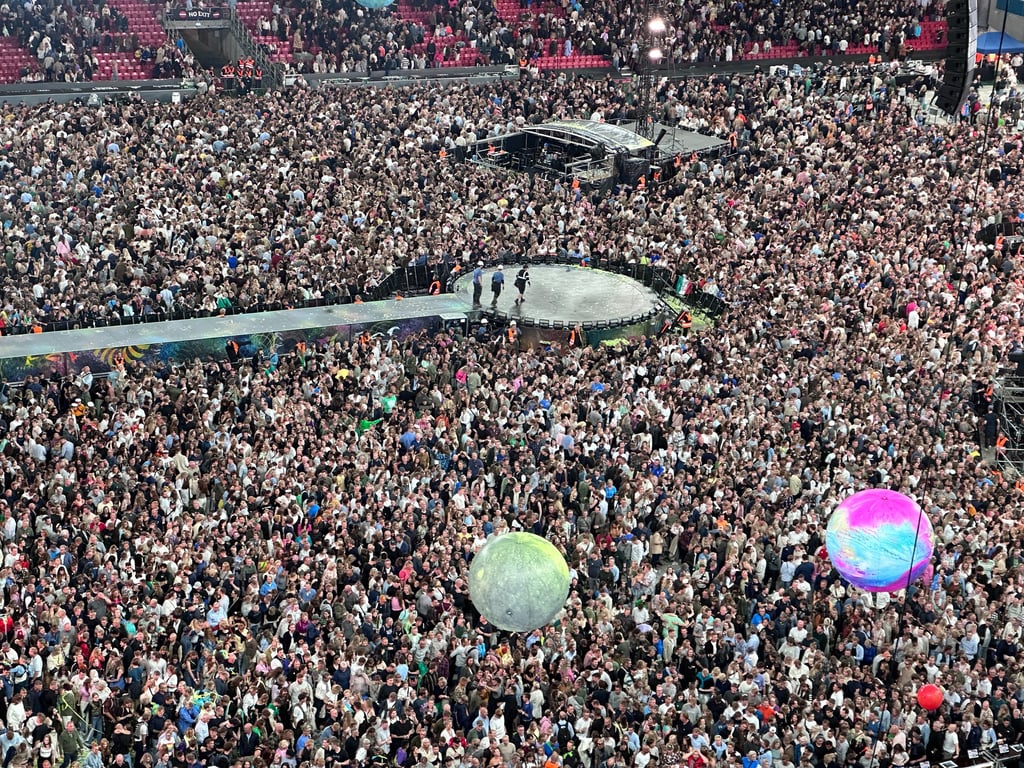How tech feeds a curious public (or a baying mob)
The Coldplay kiss cam scandal exemplifies the dangers of viral digital exposure, as the rush to public judgment not only devastates those directly involved but also inflicts lasting, unintended harm on their families and wider social circles.
GOVERNANCE
Tim Clements
7/21/20253 min read


Much of the Linkedin posts about the recent Coldplay 'kiss-cam exposure' story has covered the legal aspect, often comparing the implications from a GDPR, CCPA, PIPL, etc., perspective which does make interesting reading for data protection professionals. I read much about 'right to privacy' or 'expectation of privacy' mainly focusing on the two individuals whose private moment at a public event was captured by a camera whose purpose was to entertain yet they - a high profile company CEO and the company's HR director - became viral fodder overnight.
The footage of them was not just broadcasted at the concert but also captured on smartphones by other concert goers and then shared on social media. No matter your view as to whether their behaviour was inappropriate or acceptable, the incident sparked outrage, speculation and lots of online searches that ultimately resulted in the CEO resigning.
Through the use of well-meant technologies, often carried in our pockets, what we get up to in public are not just fleeting events, they are immortalised, replayed, scrutinised and shared. It could easily have been you or me doing something that we might not have wanted exposed and then you're suddenly thrust into the global spotlight without warning, preparation, and no recourse. Involuntary surveillance conducted under the guise of fun
Most of the posts I've read focused on the two people involved yet, in my view, this is only the tip of the iceberg. From a 'rights and freedoms' perspective, these unintended consequences harm not just the data subjects involved, but also others who are directly or indirectly involved.
What about the families and partners of the two main actors? Their privacy and emotional well-being are shattered by the public, viral shaming of someone close to them. They have been forced into the position of having to process not only private betrayal and pain, but to do so at the hands of a global audience hungry for drama and/or or justice. Judgement by a mob who are baying for more juicy gossip, a feeding frenzy that punishes not only the implicated, but anyone linked to them by fate and relationship. The harm resulting from digital shaming is indiscriminate, viral, and total. Remember the Ashley Madison case from a few years back - the suicides resulting from online shaming?
Children, uninvolved and innocent may find themselves targets of bullying and forced to carry the stigma of something far beyond their control for years to come. Harms impact social circles, extended families and professional networks,and the wounds don't heal easily.
I think the nature of these harms is quite cruel. Unlike a rumour or an indiscretion that might fade with time, this scandal will persist. Search engines, archived shares, clips on Youtube, etc., help keep the legacy of viral shame campaigns,
All this originates from a culture that treats people in public as fair game, a stance I do not agree with and you see this playing out almost everyday in data protection circles on Linkedin.
All the tech that powers kiss cams and social media enable us to surveil, record, archive, and amplify public and private moments like never before, and as we know the ethical frameworks that govern their use are seen as obstacles, and lag way behind.
There is a misconception that being in a public place eliminates our right to privacy, and we must question whether the consequences that follow such exposures are proportional or just. Should an evening’s indiscretion, exposed by the randomness of a camera, truly result in the loss of a career, the upending of families, and the potential lifelong damage to children?
The Coldplay kiss cam scandal is not unique and it is far from being complex. it is the latest in a line of examples that show just how far we have slid from respecting boundaries and understanding consequence.
The lesson is simple: the power to expose must always be balanced with the responsibility to protect, especially those who never chose the spotlight. Only then can we approach a digital society that values both truth and humanity.
Purpose and Means
Purpose and Means believes the business world is better when companies establish trust through impeccable governance.
BaseD in Copenhagen, OPerating Globally
tc@purposeandmeans.io
© 2026. All rights reserved.
